Chapter 8: Possessive Pronouns
1/162
There's no tags or description
Looks like no tags are added yet.
Name | Mastery | Learn | Test | Matching | Spaced | Call with Kai |
|---|
No analytics yet
Send a link to your students to track their progress
163 Terms
Possessive pronouns rules:
The POSSESSIVE PRONOUNS (My, Your, Our, Their, Her, His, etc.) expressed by pronominal suffixes attached to the noun.
When these suffixes are attached, the noun is said to be Inflected or Declined.
ALL NOUNS take the same inflections, but most of the nouns change their stem-vowels when Inflected and are called changeable nouns.
INFLECTED: means that the noun changes its form by adding a suffix to show possession, such as “my,” “your,” or “our”, etc.
My (1p.c.s)
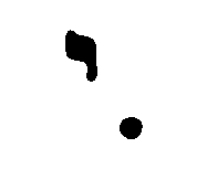
My basket (1p.c.s)
סַלִּי
Our (suffix) (1p.c.p)
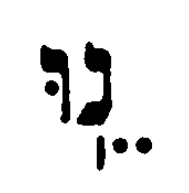
Our basket (1p.c.p)
סַלֵּנוּ
Your (2p.m.s)
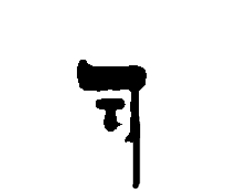
Your basket (2p.m.s)
סַלְּךָ
Your (m.p)
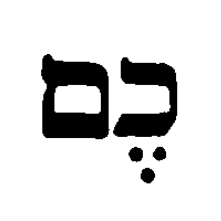
Your basket (2p.m.p)
סַלְּכֶם
His (3p.m.s)
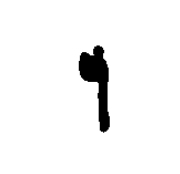
His basket (3p.m.s)
סַלּוֹ
Their
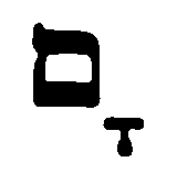
Their basket (3p.m.p)
סַלָּם
Your (2p.f.s)
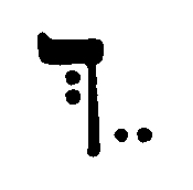
Your basket (2p.f.s)
סַלֵּךְ
Your (2p.f.p)
סַלְּכֶן
Her 3p.f.s
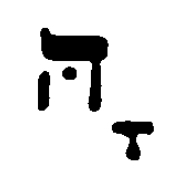
Her basket (3p.f.s)
סַלָּהּ
Their (3p.f.p)
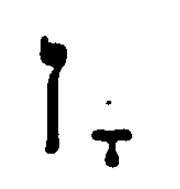
Their basket (3p.f.p)
סַלָּן
Possessive pronoun rules when modified by and Adjective and w/ definite article:
When now, with any of the pronominal suffixes attached to it, is modified by an adjective, the definite article must be prefix to such adjectives making it (Attributive) to the subject;
ex: מוֹרִי הַטּוֹב.. my good teacher;
When the adjective is indefinite, it is the (Predicate);
ex: מוֹרִי טוֹב.. my teacher is good
Predicate: is a key part of a sentence in grammar. It tells what the subject does or is. In simple terms:
• The subject is who or what the sentence is about.
• The predicate tells something about the subject-usually what the subject is doing or what is happening to the subject.
Examples
1. The dog (subject) barked loudly (predicate).
2. She (subject) is reading a book (predicate).
When using adjectives with nouns that have possessive suffixes in Hebrew, the adjective must take the definite article if it is describing (attributive) the noun, but not if it is stating something about the noun (predicate).
my cup (1p.s)
כּוֹסִּי
Our cup (1p.p)
כּוֹסֵנוּ
Your cup (2p.f.s)
כּוֹסֵךְ
Your cup (2p.m.s)
כּוֹסְךָ
Your cup (2p.f.p)
כּוֹסְכֶן
Your cup (1p.m.p)
כּוֹסְכֶם
Her cup (3p.f.s)
כּוֹסָהּ
His cup (3p.m.s)
כּוֹסוֹ
Their cup (3p.f.p)
כּוֹסָּן
Their cup (3p.m.p)
כּוֹסם
My garden (1p.c.s)
גַּנִּי
Your garden (2p.m.s)
גַּנְּךָ
Your garden (2p.m.s) Pausal form
גַנֶּךָ
Your garden (2p.f.s)
גַּנֵּךְ
His garden (3p.m.s)
גַּנּוֹ
Her garden (3p.f.s)
גַּנָּהּ
Our garden (1p.c.p)
גַּנֵּנוּ
Your garden (2p.m.p)
גַּנְּכֶם
Your garden (2p.f.p)
גַּנְּכֶן
Their garden (3p.m.p)
גַּנָּם
Their garden (3p.f.p)
גַּנָּן
My horse (1p.c.s)
סוּסִי
Your horse (2p.m.s)
סוּסְךָ
Your horse (2p.f.s)
סוּסֵךְ
His horse (3p.m.s)
סוּסוֹ
Her horse (3p.f.s)
סוּסָהּ
Our horse (1p.c.p)
סוּסֵנוּ
Your horse (2p.m.p)
סוּסְכֶם
Your horse (2p.f.p)
סוּסְכֶן
Their horses (3p.m.p)
סוּסָם
Their horse (3p.f.p)
סוּסָן
My pitcher (1p.c.s)
כַּדִּי
Your pitcher (2p.m.s)
כַּדְּךָ
Your pitcher (2p.f.s)
כַּדֵּךְ
His pitcher (3p.m.s)
כַּדּוֹ
Her pitcher (3p.f.s)
כַּדָּהּ
Our pitcher (1p.c.p)
כַּדֵּנוּ
Your pitcher (2p.m.p)
כַּדְּכֶם
Your pitcher (2p.f.p)
כַּדְּכֶן
Their pitcher (3p.m.p)
כַּדָּם
Their pitcher (3p.f.p)
כַּדָּן
My pen (1p.c.s)
עֵטִי
Your pen (2p.m.s)
עֵטְךָ
Your pen (2p.f.s)
עֵטֵךְ
His pen (3p.m.s)
עֵטוֹ
His pen (3p.f.s)
עֵטָהּ
Our pen (3p.c.p)
עֵטֵנוּ
Your pen (2p.m.s)
עֵטְכֶם
Your pen (2p.f.s)
עֵטְכֶן
Their pen (3p.m.p)
עֵטָם
Their pen (3p.f.p)
עֵטָן
My room (1p.n.s)
חֶדְרִי
Our room (1p.n.p)
חֶדְרֵנוּ
Your room (2p.m.s)
חֶדְרְךָ
Your room (2p.f.s)
חֶדְרֵךְ
Your room (2p.m.p)
חֶדְרְכֶם
Your room (2p.f.p)
חֶדְרְכֶן
His room (3p.m.s)
חֶדְרוֹ
Her room (3p.f.s)
חֶדְרָהּ
Their room (3p.m.p)
חֶדְרָם
Their room (3p.f.p)
חֶדְרָן
My Court-yard
חֲצֵרִי
Your courtyard (m.s)
חֲצֵרְךָ
Your courtyard (f.s)
חֲצֵרֵךְ
His courtyard
חֲצֵרוֹ
Her courtyard
חֲצֵרָהּ
Our courtyard
חֲצֵרֵנוּ
Your courtyard (m.p)
חֲצֵרְכֶם
Your courtyard (f.p)
חֲצֵרְכֶן
Their courtyard (m.)
חֲצֵרָם
Their courtyard (f.p)
חָצְרָן
My flag
דִּגְלִי
Your flag (m.s)
דִּגְלְךָ
Your flag (f.s)
דִּגְלֵךְ
His flag
דִּגְלוֹ
Her flag
דִּגְלָהּ
Our flag
דִּגְלֵנוּ
Your flag (m.p)
דִּגְלְכֶם
Your flag (f.p)
דִּגְלְכֶן